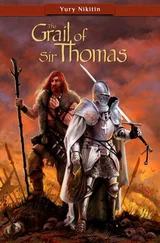Thomas Browne - The Works of Sir Thomas Browne, Volume 3
Здесь есть возможность читать онлайн «Thomas Browne - The Works of Sir Thomas Browne, Volume 3» — ознакомительный отрывок электронной книги совершенно бесплатно, а после прочтения отрывка купить полную версию. В некоторых случаях можно слушать аудио, скачать через торрент в формате fb2 и присутствует краткое содержание. ISBN: , Жанр: foreign_antique, foreign_prose, на английском языке. Описание произведения, (предисловие) а так же отзывы посетителей доступны на портале библиотеки ЛибКат.
- Название:The Works of Sir Thomas Browne, Volume 3
- Автор:
- Жанр:
- Год:неизвестен
- ISBN:http://www.gutenberg.org/ebooks/39962
- Рейтинг книги:4 / 5. Голосов: 1
-
Избранное:Добавить в избранное
- Отзывы:
-
Ваша оценка:
- 80
- 1
- 2
- 3
- 4
- 5
The Works of Sir Thomas Browne, Volume 3: краткое содержание, описание и аннотация
Предлагаем к чтению аннотацию, описание, краткое содержание или предисловие (зависит от того, что написал сам автор книги «The Works of Sir Thomas Browne, Volume 3»). Если вы не нашли необходимую информацию о книге — напишите в комментариях, мы постараемся отыскать её.
The Works of Sir Thomas Browne, Volume 3 — читать онлайн ознакомительный отрывок
Ниже представлен текст книги, разбитый по страницам. Система сохранения места последней прочитанной страницы, позволяет с удобством читать онлайн бесплатно книгу «The Works of Sir Thomas Browne, Volume 3», без необходимости каждый раз заново искать на чём Вы остановились. Поставьте закладку, и сможете в любой момент перейти на страницу, на которой закончили чтение.
Интервал:
Закладка:
Though if Adam were made out of an extract of the Earth, all parts might challenge a restitution, yet few have returned their bones far lower then they might receive them; not affecting the graves of Giants under hilly and heavy coverings, but content with lesse then their own depth, have wished their bones might lie soft, and the earth be light upon them; Even such as hope to rise again, would not be content with central interrment, or so desperately to place their reliques as to lie beyond discovery, and in no way to be seen again; which happy contrivance hath made communication with our forefathers, and left unto our view some parts, which they never beheld themselves.
Though earth hath engrossed the name yet water hath proved the smartest grave; which in fourty dayes swallowed almost mankinde, and the living creation; Fishes not wholly escaping, except the salt Ocean were handsomly contempered by a mixture of the fresh Element.
Many have taken voluminous pains to determine the state of the soul upon disunion; but men have been most phantastical in the singular contrivances of their corporall dissolution: whilest the soberest Nations have rested in two wayes, of simple inhumation and burning.
That carnal interrment or burying, was of the elder date, the old examples of Abraham and the Patriarches are sufficient to illustrate; And were without competition, if it could be made out, that Adam was buried near Damascus , or Mount Calvary , according to some Tradition. God himself that buried but one, was pleased to make choice of this way, collectible from Scripture-expression, and the hot contest between Satan and the Arch-Angel, about discovering the body of Moses . But the practice of Burning was also of great Antiquity, and of no slender extent. For (not to derive the same from Hercules ) noble descriptions there are hereof in the Grecian Funerale of Homer , in the formal Obsequies of Patroclus , and Achilles ; and somewhat elder in the Theban war, and solemn combustion of Meneceus , and Archemorus , contemporary unto Jair the Eighth Judge of Israel . Confirmable also among the Trojans , from the Funeral Pyre of Hector , burnt before the gates of Troy , and the burning 2of Penthisilea the Amazonian Queen : and long continuance of that practice in the inward Countries of Asia ; while as low as the Reign of Julian , we finde that the King of Chionia 3burnt the body of his Son, and interred the ashes in a silver Urne.
The same practice extended also far West, 4and besides Herulians , Getes , and Thracians , was in use with most of the Celtæ , Sarmatians , Germans , Gauls , Danes , Swedes , Norwegians ; not to omit some use thereof among Carthaginians and Americans : Of greater antiquity among the Romans then most opinion, or Pliny seems to allow. For (beside the old Table Laws of burning 5or burying within the City, of making the Funeral fire with plained wood, or quenching the fire with wine) Manlius the Consul burnt the body of his son: Numa by special clause of his will, was not burnt but buried; And Remus was solemnly buried, according to the description of Ovid . 6
Cornelius Sylla was not the first whose body was burned in Rome , but of the Cornelian Family, which being indifferently, not frequently used before; from that time spread and became the prevalent practice. Not totally pursued in the highest run of Cremation; For when even Crows were funerally burnt, Poppæa the wife of Nero found a peculiar grave enterment. Now as all customs were founded upon some bottom of Reason, so there wanted not grounds for this; according to several apprehensions of the most rational dissolution. Some being of the opinion of Thales , that water was the original of all things, thought it most equal to submit unto the principle of putrifaction, and conclude in a moist relentment. Others conceived it most natural to end in fire, as due unto the master principle in the composition, according to the doctrine of Heraclitus .
And therefore heaped up large piles, more actively to waft them toward that Element, whereby they also declined a visible degeneration into worms, and left a lasting parcel of their composition.
Some apprehended a purifying virtue in fire, refining the grosser commixture, and firing out the Æthereal particles so deeply immersed in it. And such as by tradition or rational conjecture held any hint of the final pyre of all things; or that this Element at last must be too hard for all the rest; might conceive most naturally of the fiery dissolution. Others pretending no natural grounds, politickly declined the malice of enemies upon their buried bodies. Which consideration led Sylla unto this practice; who having thus served the body of Marius , could not but fear a retaliation upon his own; entertained after in the Civil wars, and revengeful contentions of Rome .
But as many Nations embraced, and many left it indifferent, so others too much affected, or strictly declined this practice. The Indian Brachmans seemed too great friends unto fire, who burnt themselves alive, and thought it the noblest way to end their dayes in fire; according to the expression of the Indian, burning himself at Athens , 7in his last words upon the pyre unto the amazed spectators, Thus I make my self immortal .
But the Chaldeans the great Idolaters of fire, abhorred the burning of their carcasses, as a polution of that Deity. The Persian Magi declined it upon the like scruple, and being only solicitous about their bones, exposed their flesh to the prey of Birds and Dogs. And the Persees now in India , which expose their bodies unto Vultures, and endure not so much as feretra or Beers of Wood; the proper Fuell of fire, are led on with such nicities. But whether the ancient Germans who burned their dead, held any such fear to pollute their Deity of Herthus , or the earth, we have no Authentick conjecture.
The Ægyptians were afraid of fire, not as a Deity, but a devouring Element, mercilesly consuming their bodies, and leaving too little of them; and therefore by precious Embalments, depositure in dry earths, or handsome inclosure in glasses, contrived the notablest wayes of integrall conservation. And from such Ægyptian scruples imbibed by Pythagoras , it may be conjectured that Numa and the Pythagorical Sect first waved the fiery solution.
The Scythians who swore by winde and sword, that is, by life and death, were so far from burning their bodies, that they declined all interrment, and made their grave in the ayr: And the Ichthyophagi or fish-eating Nations about Ægypt, affected the Sea for their grave: Thereby declining visible corruption, and restoring the debt of their bodies. Whereas the old Heroes in Homer , dreaded nothing more than water or drowning; probably upon the old opinion of the fiery substance of the soul, onely extinguishable by that Element; And therfore the Poet emphatically implieth the total destruction in this kinde of death, which happened to Ajax Oileus . 8
The old Balearians 9had a peculiar mode, for they used great Urnes and much wood, but no fire in their burials; while they bruised the flesh and bones of the dead, crowded them into Urnes, and laid heaps of wood upon them. And the Chinois 10without cremation or urnal interrment of their bodies, make use of trees and much burning, while they plant a Pine-tree by their grave, and burn great numbers of printed draughts of slaves and horses over it, civilly content with their companies in effigie, which barbarous Nations exact unto reality.
Читать дальшеИнтервал:
Закладка:
Похожие книги на «The Works of Sir Thomas Browne, Volume 3»
Представляем Вашему вниманию похожие книги на «The Works of Sir Thomas Browne, Volume 3» списком для выбора. Мы отобрали схожую по названию и смыслу литературу в надежде предоставить читателям больше вариантов отыскать новые, интересные, ещё непрочитанные произведения.
Обсуждение, отзывы о книге «The Works of Sir Thomas Browne, Volume 3» и просто собственные мнения читателей. Оставьте ваши комментарии, напишите, что Вы думаете о произведении, его смысле или главных героях. Укажите что конкретно понравилось, а что нет, и почему Вы так считаете.












